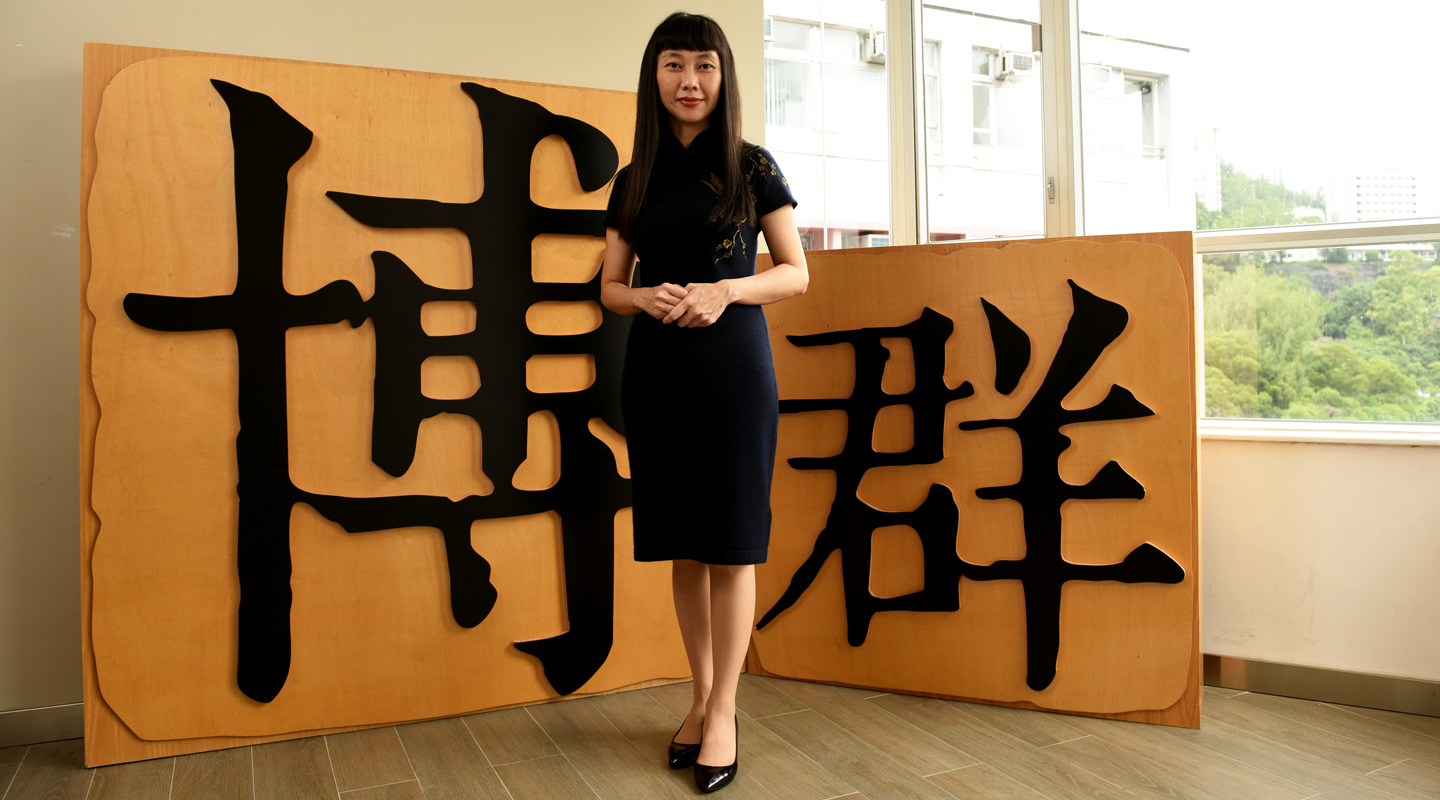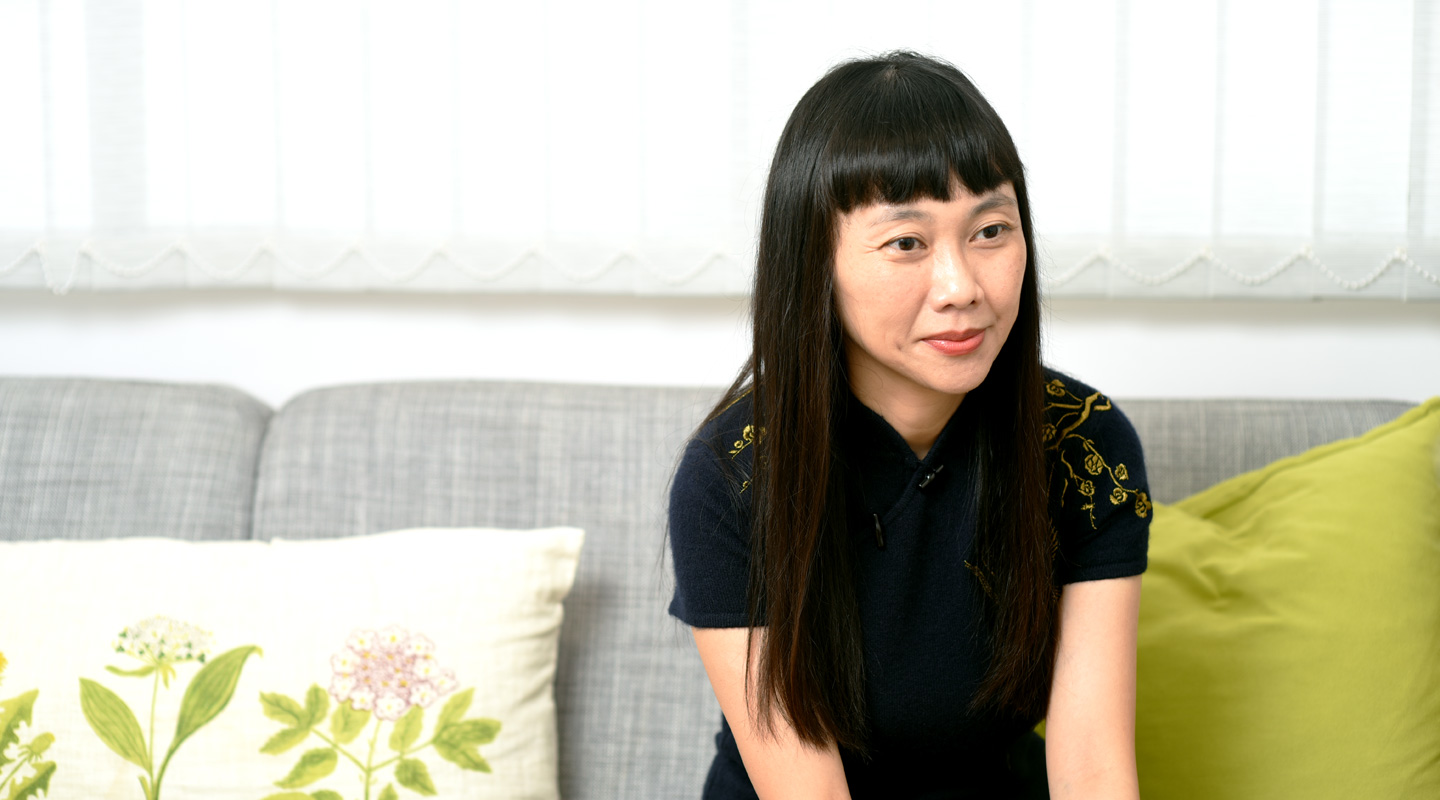Dear readers, With the launch of e-newsletter CUHK in Focus, CUHKUPDates has retired and this site will no longer be updated. To stay abreast of the University’s latest news, please go to https://focus.cuhk.edu.hk. Thank you.
Irene Ng Takes the Helm of I·CARE

Ms. Irene Ng
Director, I·CARE Centre for Whole-person Development
How do you feel about organizing the recent University Lecture on Civility?
Blessed and grateful. Long before I assumed office, Prof. Joseph Sung had personally invited Prof. Lung Ying-tai to be the speaker, and all the coordination and liaison had been meticulously followed up by Prof. Chow Po-chung. The Civility Lecture Series has been in the good hands of a team of dedicated and experienced colleagues ever since its launch in 2011. I was just sharing their harvest but not the toil. A greenhorn as I wouldn’t have made it without their guidance and help.
Do you feel bound by the event’s previous successes?
Not really. Masterminds of I·CARE, like Chow Po-chung and Donna Chu, are free spirits with liberal and adventurous leanings. They are never shy of trying out new things or out of brilliant ideas. I hope they will continue to feed I·CARE with their creativity. At the same time we will be joined by new blood with the same devotion and innovation.
Did your experience at the Office of Student Affairs (OSA) equip you for the post as Director of I·CARE Centre?
I joined OSA in 2008 and had been in close contact with students for years. It did give me an edge on how to interact with them. Further back, my 10 years at the TWGH Jockey Club Rehabilitation Complex also empowered me for my current job. I worked with my team daily to explore ways to help the physically and mentally disadvantaged as well as the ex-mentally ill to live a more meaningful life, and to help relieve the load of their caregivers. That’s how I learned to be empathetic. Some of the organization’s exemplary social enterprise projects also shed light on the social engagement exercises I’m undertaking now.
What is the scope of whole-person education, and what is most lacking in students nowadays?
The I·CARE Framework encompasses five major aspects of whole-person development: Integrity and Moral Development (I), Creativity and Intellectual Development (C), Appreciation of Life and Aesthetic Development (A), Relationships and Social Development (R), and Energy and Wellness (E). Clichés or not, they represent certain universal values. We must work harder on the moral development of students, which should include integrity, responsibility and wellness of the mind. To make steady strides in life, one must nurture the mind and reflect on the values one believes in, other than honing one’s intelligence.

How does I·CARE promote whole-person education?
All units at CUHK from the Colleges, the Faculties and departments to OSA are dedicated to whole-person education in one way or another, and each has developed its own niche. The I·CARE Framework was endorsed by the Senate in 2011 for the University-wide development of students’ non-formal learning. As the Centre is responsible for managing the Student Development Profile (SDP), an element of the Framework which aims at assisting students to plan for a balanced development, it can have a grip on individual students’ development profiles. It can also review how various units are facilitating students’ experiential learning in the fields of social service, poverty alleviation, community research, social enterprise startup and NGO internship, and provide complementary support to achieve a balanced development.
Do you agree that a literati ambience is the signature of I·CARE events?
The first initiatives of I·CARE like the Floral Festival and the Book Festival descended upon campus like no previous events did, giving it an other-worldly feel. But I·CARE is in the world, too. We have community research projects which ask students to visit the homeless and the elderly, listen to and record their stories in the form of oral history, and propose measures to help them. Enlightening lectures and inspiring cultural events are able to nurture a deep humanistic concern among students and lead to down-to-earth actions.
What plans do you have for I·CARE?
I may be too much of a novice to talk of reform or significant changes. It’s my humble wish to reinforce what has been achieved and work on refining the details. Thanks to the pioneering concepts and high efficiency of my predecessors, I·CARE has drawn a vast pool of supporters. I will need to formulate strategies to reach out for more students. I hope that all I·CARE initiatives will bring recurrent fond memories to the participants, and generate extensive rippling effects.
Why make qipao your business attire on this steep campus?
Shortly after I joined OSA, I attended a meeting with some veteran leaders of a business chamber. I had deliberately put on my business pant suit, yet one of them said to my boss, ‘How lucky you are to have a teenager helping you.’ I couldn’t help but worry that I might not have done enough to inspire confidence. So I reorganized my wardrobe, adding qipao and high-heels. The bonus is that wearing a one-piece qipao will save all the hassles of set matching. As a driver and also a frequent campus bus passenger, I don’t see any problem moving up and down hill in qipao.
This article was originally published in No. 506, Newsletter in Nov 2017.